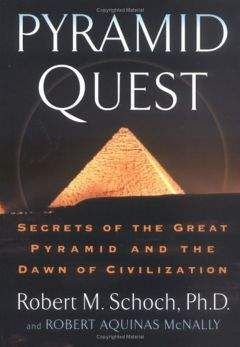and Implications for the Education of Boys,” Education Week, May 14, 2011, www.edweek.org/media/economicchange-32boys.pdf.
5. Caroline New, “Oppressed and Oppressors? The Systematic Mistreatment of Men,” Sociology 35, no. 3 (2001): 729–48.
6. Judy Y. Chu, When Boys Become “Boys”: Development, Relationships, and Masculinity (New York: New York University Press), 202.
7. Niobe Way, Deep Secrets: Boys’ Friendships and the Crisis of Connection (Boston, MA: Harvard University Press, 2011).
8. David B. Stein, Unraveling the ADD/ADHD Fiasco: Successful Parenting Without Drugs (Kansas City, MO: Andrews McMeel, 2003).
9. Mariagiovanna Baccara et al., “Child-Adoption Matching: Preferences for Gender and Race” (working paper 16444, National Bureau of Economic Research, Cambridge, MA, 2010), www.nber.org/people/mariagiovanna_baccara.
10. Justin Baldoni, “What My Newborn Son Taught Me About Masculinity,” Huffington Post, March 1, 2018, www.huffingtonpost.com/entry/opinion-baldoni-masculinity-fatherhood_us_5a944e25e4b02cb368c46d6d.
11. George Orwell, Shooting an Elephant and Other Essays (New York: Harcourt, 1984).
12. Brian Heilman, Gary Barker, and Alexander Harrison, The Man Box: A Study on Being a Young Man in the US, UK, and Mexico (Washington, DC: Promundo-US, 2017), 60, https:// promundoglobal.org/resources/man-box-study-young-man-us-uk-mexico/?lang=english.
13. Sandra L. Bem, “Gender Schema Theory: A Cognitive Account of Sex Typing Source,” Psychological Review 88, no. 4 (1981): 354; Olga Silverstein and Beth Rashbaum, The Courage to Raise Good Men: You Don’t Have to Sever the Bond with Your Son to Help Him Become a Man (New York: Penguin, 1995).
14. Kate Stone Lombardi, The Mama’s Boy Myth (New York: Penguin, 2012).
15. Heilman, Barker, and Harrison, The Man Box.
16. Chu, When Boys Become “Boys,” 206–7.
17. Ruth Perou et al., “Mental Health Surveillance Among Children — United States 2005–2011,” Morbidity and Mortality Weekly Report (MMWR) 62, no. 2 (May 17, 2013): 1–35, www.cdc.gov/mmwr/preview/mmwrhtml/su6202a1.htm; L. Alan Sroufe, “Ritalin Gone Wrong,” Opinion, New York Times online, January 28, 2012, www.nytimes.com/2012/01/29/opinion/sunday/childrens-add-drugs-dont-work-long-term.html.
18. David D. Gilmore, Misogyny, the Male Malady (Philadelphia: University of Pennsylvania Press, 2001), 203.
19. Martha Nussbaum, Creating Capabilities: The Human Development Approach (Cambridge, MA: Belknap Press, 2013).
20. Way, Deep Secrets, 77.
21. Amy Banks, Wired to Connect: The Surprising Link Between Brain Science and Strong, Healthy Relationships (New York: Tarcher/Penguin, 2015).
22. Donald O. Hebb, The Organization of Behavior (New York: Wiley & Sons, 1949); Daniel J. Siegel and Mary Hartzell, Parenting from the Inside Out: How a Deeper Self-Understanding Can Help You Raise Children Who Thrive (New York: Tarcher/Penguin, 2003), 34.
23. Daniel J. Siegel. The Developing Mind: How Relationships and the Brain Interact to Shape Who We Are (New York: Guilford Press, 1999), xii.
24. Alison Gopnik, The Gardener and the Carpenter: What the New Science of Child Development Tells Us About the Relationship Between Parents and Children (New York: Farrar, Straus and Giroux, 2016), 18.
25. Там же, 9.
26. Там же, 10.
27. Там же, 56.
28. William J. Bennett, The Book of Virtues: A Treasury of Great Moral Stories (New York: Simon & Schuster, 1993); Josephson Institute, accessed August 25, 2017 at https://charactercounts.org/program-overview/six-pillars.
29. Там же, 59.
30. Nel Noddings, Educating Moral People: A Caring Alternative to Character Education (New York: Teachers College Press, 2002), xiii.
31. Там же, 15.
32. Там же, 32.
Глава 2 ОСВОБОДИТЕ МАЛЬЧИКОВ
1. Chu, When Boys Become “Boys,” 21.
2. Там же, 24.
3. Там же, 33.
4. Там же, 205.
5. Miriam Raider-Roth et al., “Resisting Boys, Resisting Teachers,” in special double issue, Reproduction, Resistance and Hope: The Promise of Schooling for Boys, ed. Michael C. Reichert and Joseph D. Nelson of THYMOS: Journal of Boyhood Studies 6, no. 1 (Spring 2012): 34–54.
6. Там же.
7. Там же.
8. Diana Divecha, “What Is Secure Attachment? And Why Doesn’t ‘Attachment Parenting’ Get You There?” Developmental Science (blog), April 3, 2017, www.developmentalscience.com.
9. Allan Schore, “Modern Attachment Theory,” in Handbook of Trauma Psychology, ed. Steven N. Gold (Washington, DC: American Psychological Association, 2017), 6.
10. Michael P. Nichols, The Lost Art of Listening: How Learning to Listen Can Improve Relationships (New York: Guilford Press, 2009), 15.
11. Там же, 26.
12. Siegel and Hartzell, Parenting from the Inside Out, 34.
13. Nichols, Lost Art of Listening, 139.
14. Siegel and Hartzell, Parenting from the Inside Out, 154–83.
15. Там же, 23.
16. Там же, 193.
17. Patty Wipfler and Tosha Schore, Listen: Five Simple Tools to Meet Your Everyday Parenting Challenges (Palo Alto, CA: Hand in Hand Parenting, 2016), 326.
18. Там же, 50.
ГЛАВА 3 Нежное сердце сорванца
1. Heilman, Barker, and Harrison, The Man Box, 36.
2. Kevin Love, “Everyone Is Going Through Something,” Players’ Tribune, last modified March 6, 2018, www.theplayerstribune.com/en-us/articles/kevin-love-everyone-is-going-through-something.
3. Jean M. Twenge, iGen: Why Today’s Super-Connected Kids Are Growing Up Less Rebellious, More Tolerant, Less Happy — and Completely Unprepared for Adulthood (New York: Atria Books, 2017), 93.
4. Там же, 103–4.
5. “5 Minute Guide to Men’s Mental Health,” Mental Health America online, accessed April 10, 2018, www.mentalhealthamerica.net/issues/infographic-mens-mental-health-5-minute-guide.
6. Ronald F. Levant and Wizdom A. Powell, “The Gender Role Strain Paradigm,” in The Psychology of Men and Masculinities, ed. Ronald F. Levant and Y. Joel Wong (Washington, DC: American Psychological Association, 2017), 15–44.
7. James M. O’Neil, Men’s Gender Role Conflict: Psychological Costs, Consequences, and an Agenda for Change (Washington, DC: American Psychological Association, 2015), 24.
8. Stephanie A. Shields, Speaking from the Heart: Gender and the Social Meaning of Emotion (Cambridge: Cambridge University Press, 2002), 93.
9. Arlie R. Hochschild, The Managed Heart (Berkeley: University of California Press, 1983).
10. Thomas Newkirk, “Misreading Masculinity: Speculations on the Great Gender Gap in Writing,” Language Arts 77, no. 4 (March 2000): 294–300, www.csun.edu/~bashforth/305_PDF/305_ME2/305_Language&Gender/MisredaingMasculinity_GenderGapInWriting_LA2000.pdf.
11. Pollack, “No Man Is an Island,” 195.
12. O’Neil, Men’s Gender Role Conflict, 10.
13. Maurice J. Elias et al., Promoting Social and Emotional Learning: Guidelines for Educators (Alexandria, VA: Association for Supervision and Curriculum Development, 1997), 2.
14. Joseph A. Durlak et al., “The Impact of Enhancing Students’ Social and Emotional Learning: A Meta-analysis of School-based Universal Interventions, Child Development 82, no. 1 (January/February 2011): 405–32, https://doi: 10.1111/j.1467–8624.2010.01564.x.
15. 2015 CASEL Guide: Effective Social and Emotional Learning Programs (Chicago: Collaborative for Academic, Social, and Emotional Learning [CASEL], June 2015), https://secondaryguide.casel.org/casel-secondary-guide.pdf.
16. Marc A. Brackett and Susan E. Rivers, “Transforming Students’ Lives with Social and Emotional Learning,” in International Handbook of Emotions in Education, ed. Reinhard Pekrun and Lisa Linnenbrink-Garcia (New York: Routledge, 2014); Rafael Heller, “On the Science and Teaching of Emotional Intelligence: An Interview with Marc Brackett,” Phi De Ha Kappan 98,





